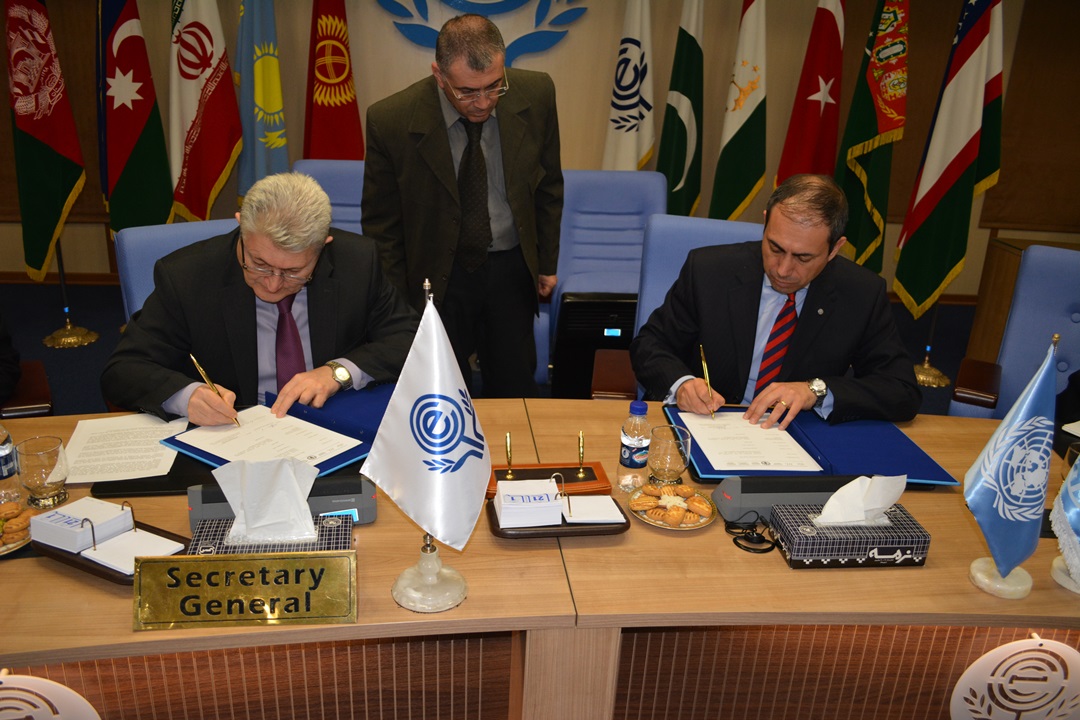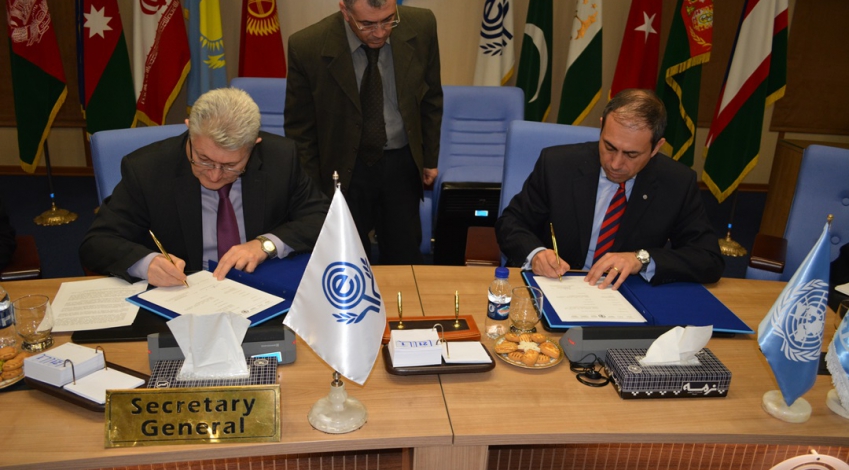 From left ro right: Mr. Serge Nakouzi, Representitive of FAO in I.R. Iran & Dr. Shamil Aleskerov, Secretary-General of ECO[/caption]
From left ro right: Mr. Serge Nakouzi, Representitive of FAO in I.R. Iran & Dr. Shamil Aleskerov, Secretary-General of ECO[/caption]The Food and Agriculture Organization of the United Nations�(FAO)and�Economic Cooperation Organization (ECO)�signed Wednesday an agreement on technical assistance for the formulation of strategies targeting regional eradication of a livestock disease known as PPR (�peste des petits ruminants�), which is also known as the �goat plague�.
At a ceremony held at ECO headquarters in Tehran, Mr. Serge Nakouzi, Representative of the Food and Agriculture Organization of the United Nations to the Islamic Republic of Iran and to ECO, signed and exchanged the agreement together with Dr. Shamil Aleskerov, Secretary-General of the Economic Cooperation Organization (ECO).
Given the significant challenges faced by countries in Central and South Asia as well as Africa in controlling PPR, FAO developed cost-effective and sustainable control strategies that are adaptable to each regional and sub-regional context. Implementation of these strategies is being carried out within the framework of a regional Technical Cooperation Programme which is being executed by FAO together with ECO, the African Union and the South Asian Association for Regional Cooperation (SAARC).
The ECO Secretary-General stated that �ECO Member States will benefit greatly from the implementation of this project which aims to solve this critical problem afflicting the region�. Dr Aleskerov further conveyed the gratitude of ECO Member States for the crucial role undertaken by FAO, and notably by its Representation in Iran, to reinforce the agricultural sectors as well as promote food security in the region through the FAO Regional Food Security Programme (RPFS).
In the statement delivered at the signing ceremony, Mr Nakouzi highlighted the current impact of the PPR and underscored the importance of this regional project to the food security and economies of the ECO member countries as well as to the livelihoods of the rural communities in the ten countries.� He noted that, through the provision of FAO�s technical assistance and the application of the control strategies, the countries would strengthen their capacities to curb, in both a comprehensive and sustainable manner, the adverse consequences resulting from the outbreak of the �goat plague� in the region
To read the story on the FAO Iran site see�here.
By United Nations In Iran
The Iran Project is not responsible for the content of quoted articles.











